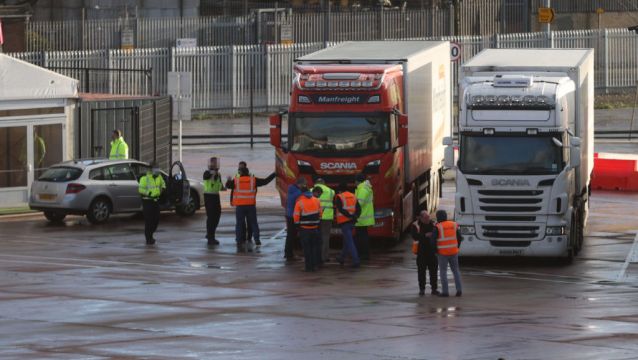Britain has delayed imposing its full post-Brexit import controls on goods from the European Union until the end of next year, saying retailers were facing too many other cost pressures and it did not want to add more fuel to inflation.
Britain left the EU's single market in January 2021 and has delayed implementation of its full post-Brexit border controls on several occasions due to worries about port disruption and now the risk of adding to a cost-of-living crisis.
The UK government said on Thursday that Russia's invasion of Ukraine and the recent rise in global energy costs were having a significant effect on supply chains that were still recovering from the coronavirus pandemic.
"It's vital that we have the right import controls regime in place, so we'll now be working with industry to review these remaining controls so that they best suit the UK's own interests," said Jacob Rees-Mogg, Britain's minister for Brexit opportunities.
The EU introduced its rules for imports of British goods immediately at the start of last year.
Risk assessment
The government said it would review how best to implement its remaining controls, factoring in a better assessment of risk, and using data and technology to smooth the process.
The new plan will be published later this year and the new controls regime will come into force at the end of 2023.
Controls no longer being introduced for EU goods from July include sanitary and phytosanitary checks at the border and requirements for safety and security declarations on imports, as well as restrictions on chilled meats imports.
The changes mean British importers would be spared at least £1 billion a year in annual costs, the government said.
Controls introduced by Britain in January 2021 on the highest risk imports of animals, animal products, plants and plant products will continue to apply, it said.
Admission
Opposition Labour lawmaker Hilary Benn, co-chair of the UK Trade and Business Commission, said the move was an admission that custom controls would worsen the cost of living crisis, while British exporters still faced additional costs and delays.
"It is extraordinary that imports into the UK are being favoured over UK exports to the EU and this just highlights the barriers to trade that have been put in place by their threadbare Brexit deal," Benn said.
British inflation hit a 30-year high of 7 per cent in March and is set to climb higher in the coming months, leaving households facing the biggest loss of income since at least the 1950s, according to the government's budget forecasters.
Earlier on Thursday, supermarket group Sainsbury's warned its profits would fall due to higher costs and lower spending by its customers, echoing the message from market leader Tesco earlier this month.
Researchers led by the London School of Economics said on Wednesday that extra trade barriers created by Brexit had added 6% to the cost of food in Britain.
British media reports have said the government is considering lowering or scrapping import duties on some food items as another way to ease inflation in the sector. - Reuters







